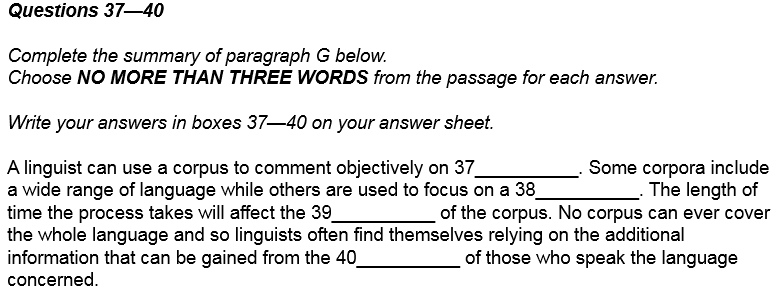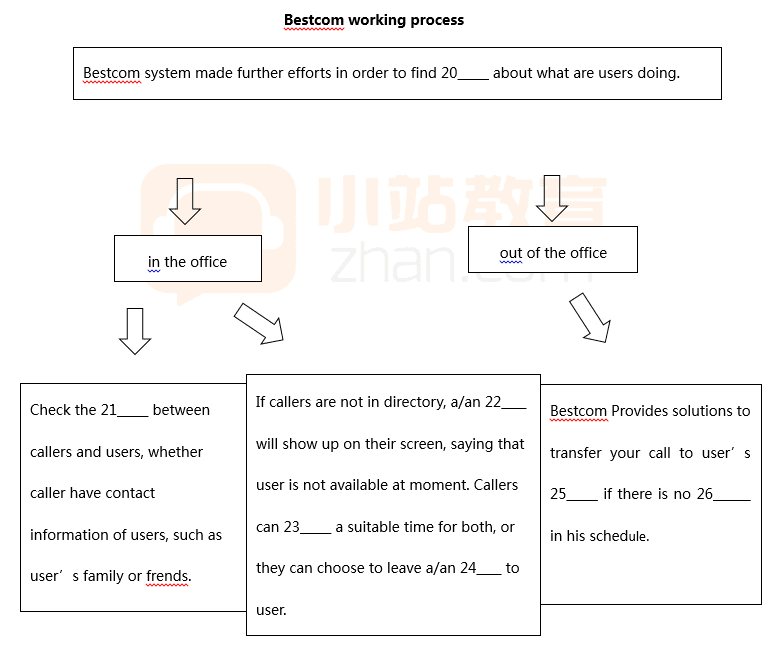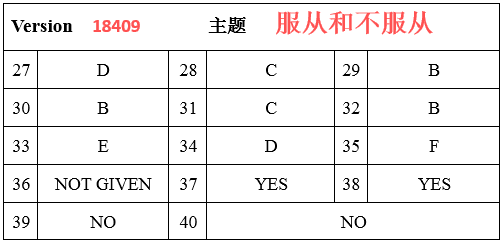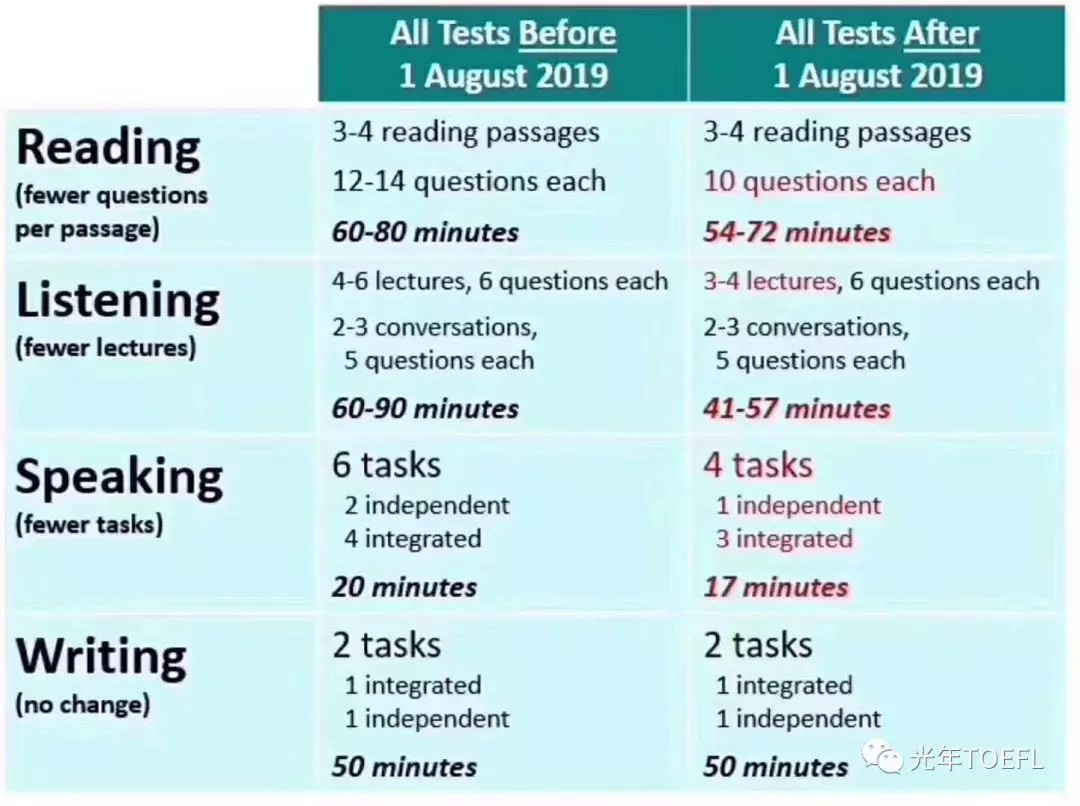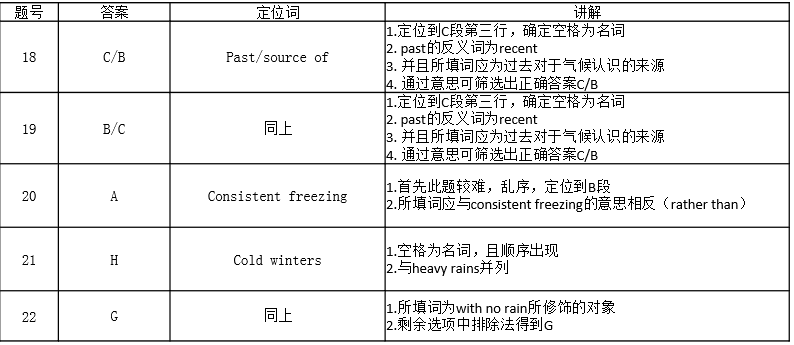托福阅读为什么读不快看不懂
托福阅读部分觉得时间紧张,很多时候并不是大家做题速度太慢,而是文章读得不够快。今天小编给大家带来了托福阅读为什么读不快看不懂,希望能够帮助到大家,一起来学习吧。
托福阅读为什么读不快看不懂
托福阅读错误习惯:复视
复视指的是读完一个句子或段落后回过头去重复阅读。阅读能力差的同学往往过分依赖于复视以养成一种习惯。改变这种不良习惯的办法就是让自己阅读大量难度适宜的材料,这样就不会因遇到生词或不太懂的短语、句子或段落而回过头来再看,以至养成复视的习惯。
托福阅读错误习惯:音读
许多同学都有出声阅读的习惯。出声阅读的主要弊病就是使阅读速度和效率受说话速度的限制。因为,正常默读速度几乎要比出声朗读的速度快两倍以上。另外,出声阅读往往以不同的形式表现出来,有时看见的仅仅是无声地动动嘴唇,有时甚至连嘴唇也不动,只是舌、喉在活动。嘴唇的活动无疑会影响眼睛的扫视速度," 一个有效率的读者能够只要看到印刷符号,就直接获得意思,而不经过声音阶段。"因此,要克服这种不良的阅读习惯,就要训练自己养成通过视觉器官直接感知文字符号的视读能力。
托福阅读错误习惯:摆动头部
阅读时头部下意识地左右摆动是阅读的另一坏习惯。在阅读过程中,有些人往往尽量使自己的鼻尖对准他正在读的每一个字。这样,当他顺着一行字往下读时,他就会轻微地摆动头部,而当他通过头来看下一行时,他就会很快转回去以便使鼻尖再对准书页的左边。这种头的摆动,学生往往意识不到,而正是这种不必要的动作往往对阅读速度产生影响。因此,必须克服这种毛病,养成阅读时只移动视线的习惯。
托福阅读错误习惯:指读
指读是指用手指、铅笔或尺等指着一个个词进行阅读的习惯。这种指读的单纯机械运用不仅会减慢阅读速度,而且还会把我们的注意力引向错误的方向。一个高效率的阅读者不会注意单词的位置,也不会在每个单词上平均花费时间,而是把注意力集中在作者要阐明的思想内容上。指读的习惯实际上妨碍了眼睛运动并限制了大脑的快速活动能力。因此,必须克服这种不良的阅读习惯,逐渐养成用脑瞬间反映文字信息的能力。
托福阅读错误习惯:心读
心读是一种很难观到的阅读习惯。心读时,人体的任何部位,不论嘴、头或声带都没有动,只存在一种说话的内在形式:学生在内心里始终自言自语,清晰地发出并听着每个字音。这种毛病亦是一种很坏的阅读习惯,它直接影响到阅读的速度和效率,并且矫正起来又比较困难。采用强制自己深入理解文章内容的同时,又强制自己加快阅读速度的方法一般能逐渐克服这种坏习惯。
托福阅读如何快速提分
1、主题——增加背景知识
有部分学生反映做阅读时很难投入进去,有一点原因就是对于文章所述内容太过陌生,如果你对其略知一二,相信定会有所不同。比如TPO中有篇文章讲到化学元素周期表,对于高中生来说再熟悉不过了,阅读的时候半读半猜,估计也可以理解的89不离十了。
若考试准备时间充足,可以多加涉猎,扩充自己的知识背景;若时间紧张,则需搞定TPO套题。根据文章记忆单词,并不是文章中出现的每一个“陌生的面孔”都要去熟悉,比如一些繁琐的专有名词跳过即可。主要记忆的当然是一些动词、名词及形容词,尤其是出现在句子主干中,与解题有关的词汇。
除了词汇,应学会分析题干及题目,比如题干中出现了effect,conclusion之类的词,其实已经界定了我们寻找的范围——段落靠后的部分,还有就是观点性和总结性的句子永远会是考察的重点所在。做题的时候学会分析原文和选项,进行对比,比如句子简化题,做一题需要看五个长句,似乎很花费时间,但并不需要每个句子都要细看,而是先明确原句的逻辑及主干,抓住选项中的关键点与原句进行比较。
例如:As a result of crustal adjustments and faulting, the Strait of Gibraltar, where the Mediterranean now connects to the Atlantic, opened, and water cascaded spectacularly back into the Mediterranean.A. The strait of Gibraltar reopened when the Mediterranean and the Atlantic became connected and the cascades of water from one sea to the other caused crustal adjustments and faulting.B. The Mediterranean was dramatically refilled by water from the Atlantic when crustal adjustments and faulting opened the Strait of Gibraltar, the place where the two seas are joined.C. The cascades of water from the Atlantic to the Mediterranean were not as spectacular as the crustal adjustments and faulting that occurred when the Strait of Gibraltar was connected to those seas.D. As a result of crustal adjustments and faultin;g and the creation of the Strait of Gibraltar, the Atlantic and Mediterranean were connected and became a single sea with spectacular cascades of water between them。
原句是因果逻辑的句子,先找出其因: crustal adjustments and faulting,果:the Strait opened, and water cascaded spectacularly back into the Mediterranean。接着来看选项:A…. caused crustal adjustments and faulting 显然是因果倒置了,毫不犹豫地灭掉;C. 因为此选项中出现比较not as spectacular as, 非常惹眼的一个核心词,而原文中是修饰动词的副词spectacularly,并未进行比较,二话不说也排除掉;D. As a result of crustal adjustments and faulting and the creation of the Strait of Gibraltar,… 这原因里怎么多出来一项啊,掳袖子撵人吧!
2、题型——注重解题方法
托福阅读10种题型,除最后的小结题外大都属于考查文章细节的题目。根据题干中的关键词定位是至关重要的一步,然后就是理解。此时如果词汇量太小怎么办?事实上做阅读我们永远要牢记的就是找句子主干,考查的信息基本都在主干中体现了,
比如:The deer which once picturesquely dotted the meadows around the fort were gone [in 1832], hunted to extermination in order to protect the crops。
这个句子较长,其中有which引导的定语从句,还有hunted… 这个状语,而解题时我们只需要句子的主干The deer were gone。多数同学在做题时有个习惯就是看到一句话后就开始逐词阅读,甚至试图把它翻译成中文,这可谓“兵家大忌”。
遇到一句话先抓主干,遇到整段记得扫描段落有无显眼的连词,举例信号词等,浏览每段的主题句。
再说一下小结题,大多数考生的切肤之痛。一是做到最后一题时时间已所剩无几,二是最后一题是对全文的主要内容的总结,相对复杂。
在课堂中,我一再向学生强调把握全文结构及大意的重要性,而如何去把握?
一是做题之前可大概浏览文章的标题及每段首句。作为学术性的阅读文章,首句基本都是主题句。尤其是总分结构的文章,比如TPO6中的Infantile Amnesia, 虽然文章较难理解,但是文中明确提出了三种观点first,second,third… 那么此类文章小结题的选项太显而易见了。再者,文章的每段会对应出2-3道题,那么题目中对应的部分基本都是段落的核心所在。从这两点就可以很快了解文章的主要内容。所以在进行TPO练习时,做题虽不可或缺,但还要注意多加练习快速阅读文章的能力。
托福阅读的弦外之音
原文:
M: Do you know what time the train goes the city?
W: Normally it’s every 20 minutes. But it’s weekend, so I’m not sure.
选项:
(A) Listen to the traffic report on the radio
(B) Take a later train.
(C) Ron to catch the next train.
(D) Check the weekend schedule.
很显然这里的正确答案为D,因为原问题到了周末时间表与周1-5不同,因此,最好的选择方案是看一下周末的时间表,去找一下准确的时间。
很显然这里W并没有直接的告诉我们要去查询时间表,而是告诉我们周末的时间不确定,因此我们发现了她实际上是在暗示我们要Check the weekend schedule。这就是典型的弦外之音。
新托福阅读也继承了老托福听力的光荣传统:P,也开始为我们大张旗鼓的玩起了弦外之音这样的事情。这一点尤其在新托福TPO里面体现得尤为明显。
无老师当然还是拿真实例子说话,首先看一下新托福真题TPO1里面的一段。
Groundwater is the word used to describe water that saturates the ground, filling all the available spaces. By far the most abundant type of groundwater is meteoric water; this is the groundwater that circulates as part of the water cycle. Ordinary meteoric water is water that has soaked into the ground from the surface, from precipitation (rain and snow) and from lakes and streams. There it remains, sometimes for long periods, before emerging at the surface again. At first thought it seems incredible that there can be enough space in the “solid” ground underfoot to hold all this water.
题目:
Which of the following can be inferred from paragraph 1 about the ground that we walk on?
A It cannot hold rainwater for long periods of time.
B It prevents most groundwater from circulating.
C It has the capacity to store large amounts of water.
D It absorbs most of the water it contains from rivers.
很显然原文At first thought it seems incredible that there can be enough space in the “solid” ground underfoot to hold all this water. 为我们提到很难想象,在如此“坚实”的地下,会有足够的空间来盛如此之多的水,这里就很隐晦的告诉我们其实地下并不“坚实”,而是还有很多的空间,来盛放groundwater,因此我们得到的正确答案就是C选项,也就是原来我们行走的这片土地之下还有足够的能力来承载如此之多的水。
很显然,这里也是很隐晦的告诉我们地下空间其实是很大的。
下面这道题也是一样。
The same thing happens to this day, though on a smaller scale, wherever a sediment-laden river or stream emerges from a mountain valley onto relatively flat land, dropping its load as the current slows: the water usually spreads out fanwise, depositing the sediment in the form of a smooth, fan-shaped slope. Sediments are also dropped where a river slows on entering a lake or the sea, the deposited sediments are on a lake floor or the seafloor at first, but will be located inland at some future date, when the sea level falls or the land rises; such beds are sometimes thousands of meters thick.
All of the following are mentioned in paragraph 3 as places that sediment-laden rivers can deposit their sediments EXCEPT
A A mountain valley
B Flat land
C A lake floor
D The seafloor
本题问的是到底哪里没有沉积呢?
dropping its load as the current slows: the water usually spreads out fanwise, depositing the sediment in the form of a smooth, fan-shaped slope. 告诉我们,只有在流速缓慢的地点才会沉积。但是他不直接告诉我们具体在什么地点,而是让我们去用逻辑推理。
因此当我们寻找的时候,发现Flat land“平缓之地”毫无疑问是流速缓慢的,这样的地方不会沉积,然后再告诉我们a river slows on entering a lake or the sea,湖和海洋,也是流速缓慢的地点,自然也不会沉积。那么唯一会沉积的地方也就只有上游mountain valley才会沉积,因为河流流经的地点分别是from a mountain valley onto relatively flat land,以及a river slows on entering a lake or the sea。
自然当我们排出了Flat land、a lake以及the sea之后,也就只可能剩下mountain valley了。
托福阅读相关文章:
★ 英语阅读
★ 学习资料库
★ 学习资料库
★ 大学英语学习计划书
★ 托福听力备考阶段高效提升必做4件事
★ 托福听力7大类关键信号词全面讲解
★ 托福改革后首考落幕 新增“托福移动考点”
★ 托福阅读备考5个步骤分享
★ 托福阅读句子插入题解题本质原则讲解
★ 短期内提升托福听说读写的方法
上一篇:托福阅读刷题错误率太高原因
下一篇:托福阅读修辞目的题出题形式简介

